Acest text e semnat de Radu Oleniuc.
Putin nu dorește să elibereze doar cetățenii ruși ce trăiesc sub jugul ucrainian. Mai nou se pare că vrea să elibereze inclusiv compușii hidroxilici, hidrocarburile, cât și orice alt metacarpan sau hidrocarbură aromatică ucraineană întâlnită pe drum.
Mai jos aveți zăcămintele de gaz si petrol din Cape Tarkhankut, Ucraina. Adâncimea Mării Negre aici este în jur de 50 metri, ceea ce le face foarte ușor de extras. Valoarea zăcămintelor pentru ceea ce vedeți in poză se situeaza între 500 și 800 miliarde dolari (P50) ceea ce nu e nici foarte mult dar nici foarte puțin, având în vedere averile unora.
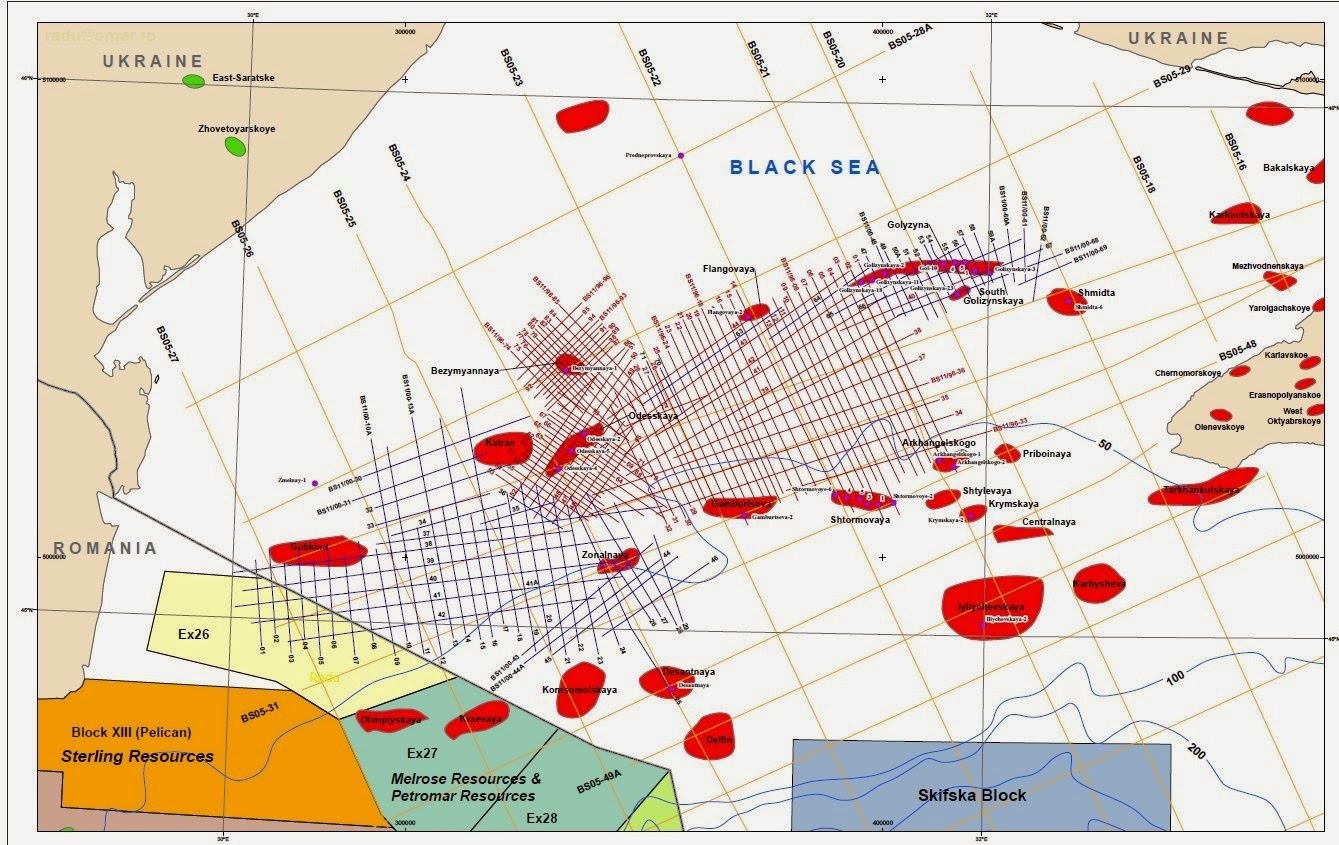
Însă nu e doar atât. Nu vorbim numai despre cea mai mare captură de război de ocupare (pardon, eliberare) din istorie. Caspian Pipeline Consortium Project, o companie formată prin asocierea dintre Transneft, Guvernul Republicii Kazakhstan, KazMunayGas, BP, Chevron, Mobil, Caspian Pipeline, Shell Caspian Ventures, Agip International cât și altți, ce exploatează zăcămintele aflate în Marea Caspică, ar avea și ea numai de câștigat. Pentru că nu ar mai fi nevoită să treacă cu conductele prin mijlocul Mării Neagre, la o adâncime de 1800 metri și printr-un relief deloc prietenos (singura tehnologie din lume capabilă de acest lucru este deținută de guvernul SUA și a fost folosită la conducta ce leagă Turcia), ci ar exista varianta trecerii pe uscat. Prin Crimeea pe lângă litoral, în aer curat, la soare.

Din Novorossiysk și până la Varna nu e chiar atat de mult. Ocolul prin Sevastopol ar fi nesemnificativ.
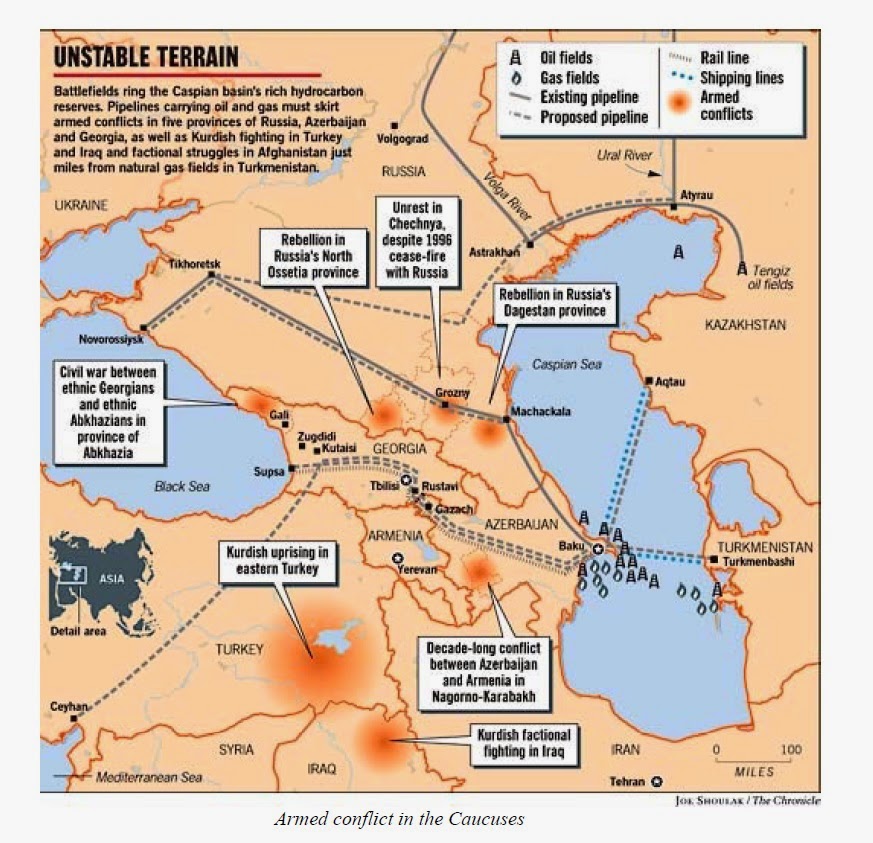
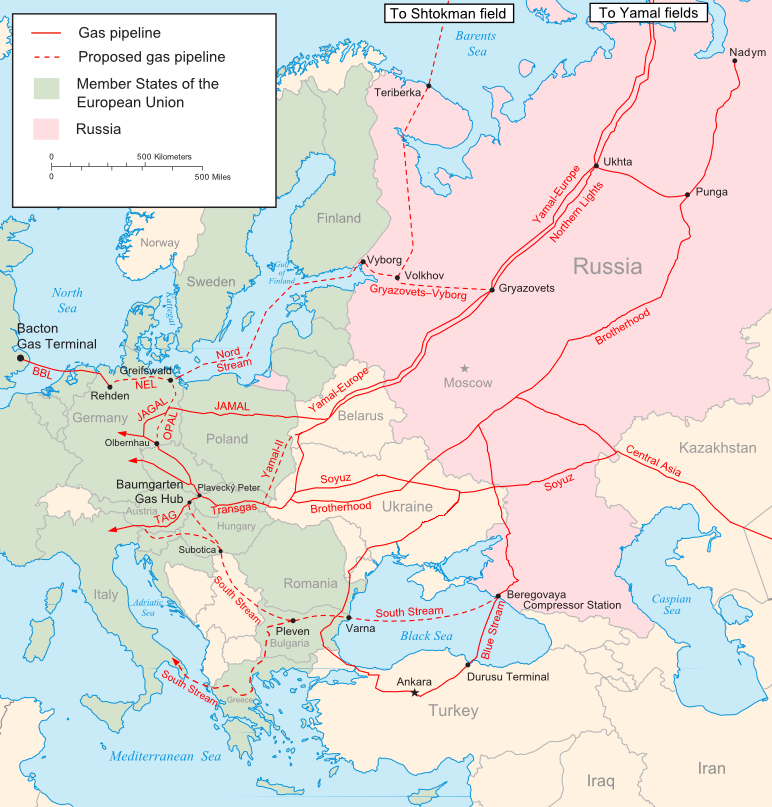
Ar fi chiar mai ieftin, dacă stăm și ne gândim. Cu multe zeci de miliarde mai ieftin (nu că asta ar conta vreodată pentru un comunist). Singura problema e că trebuie să treacă musai prin platoul continental românesc, însă acolo cred că se poate rezolva trecerea destul de ușor, nu-i așa domnule Ponta?

 Puteți sprijini activitatea noastră cu o donație unică sau una recurentă prin Patreon.
Puteți sprijini activitatea noastră cu o donație unică sau una recurentă prin Patreon.



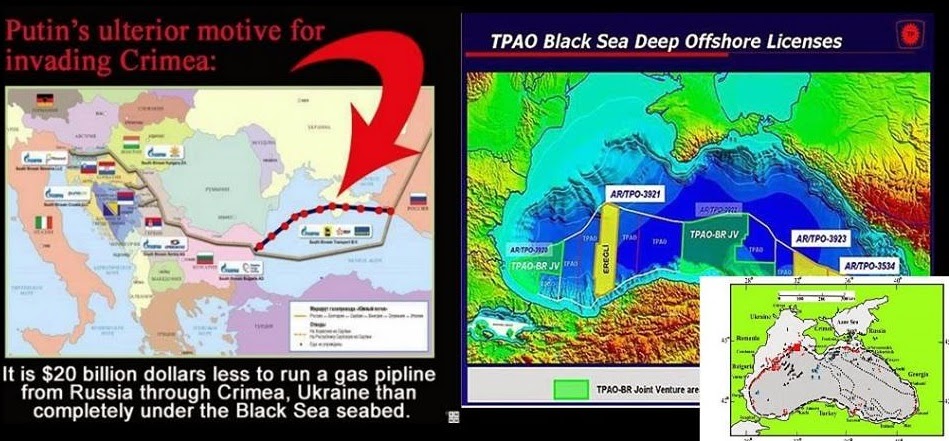




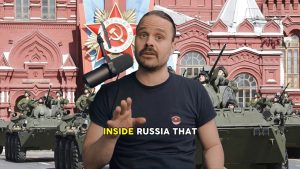
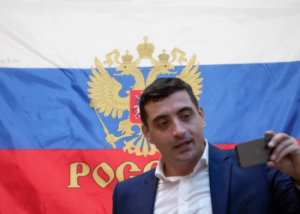
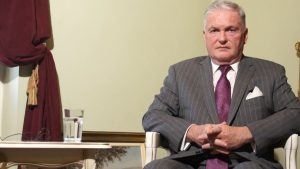

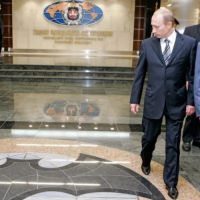
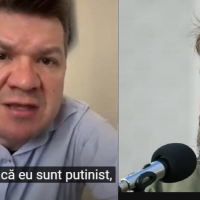

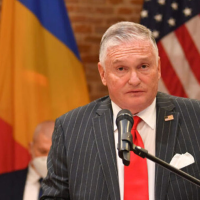
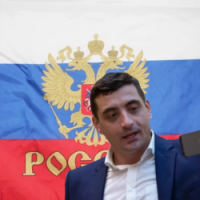
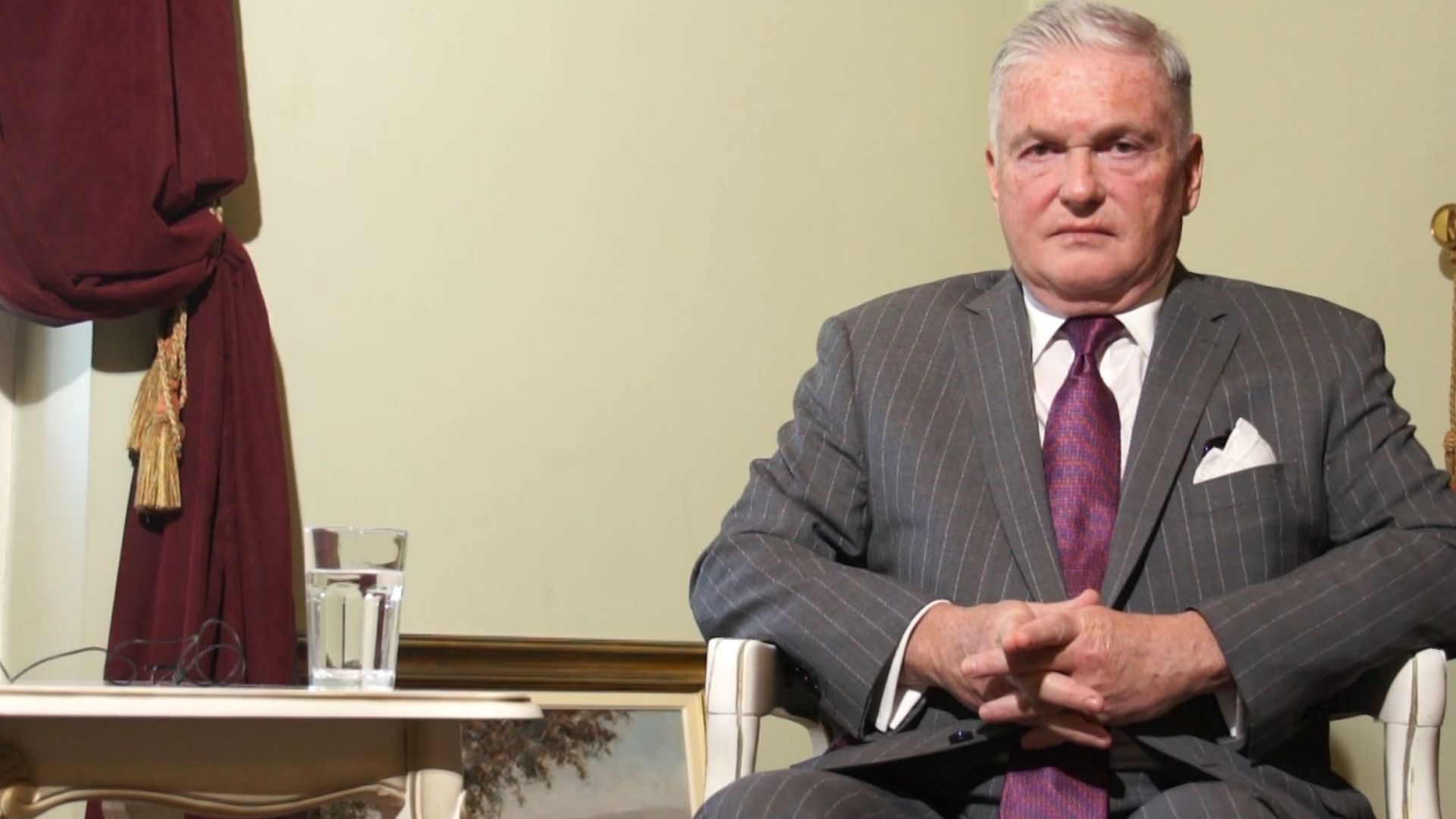

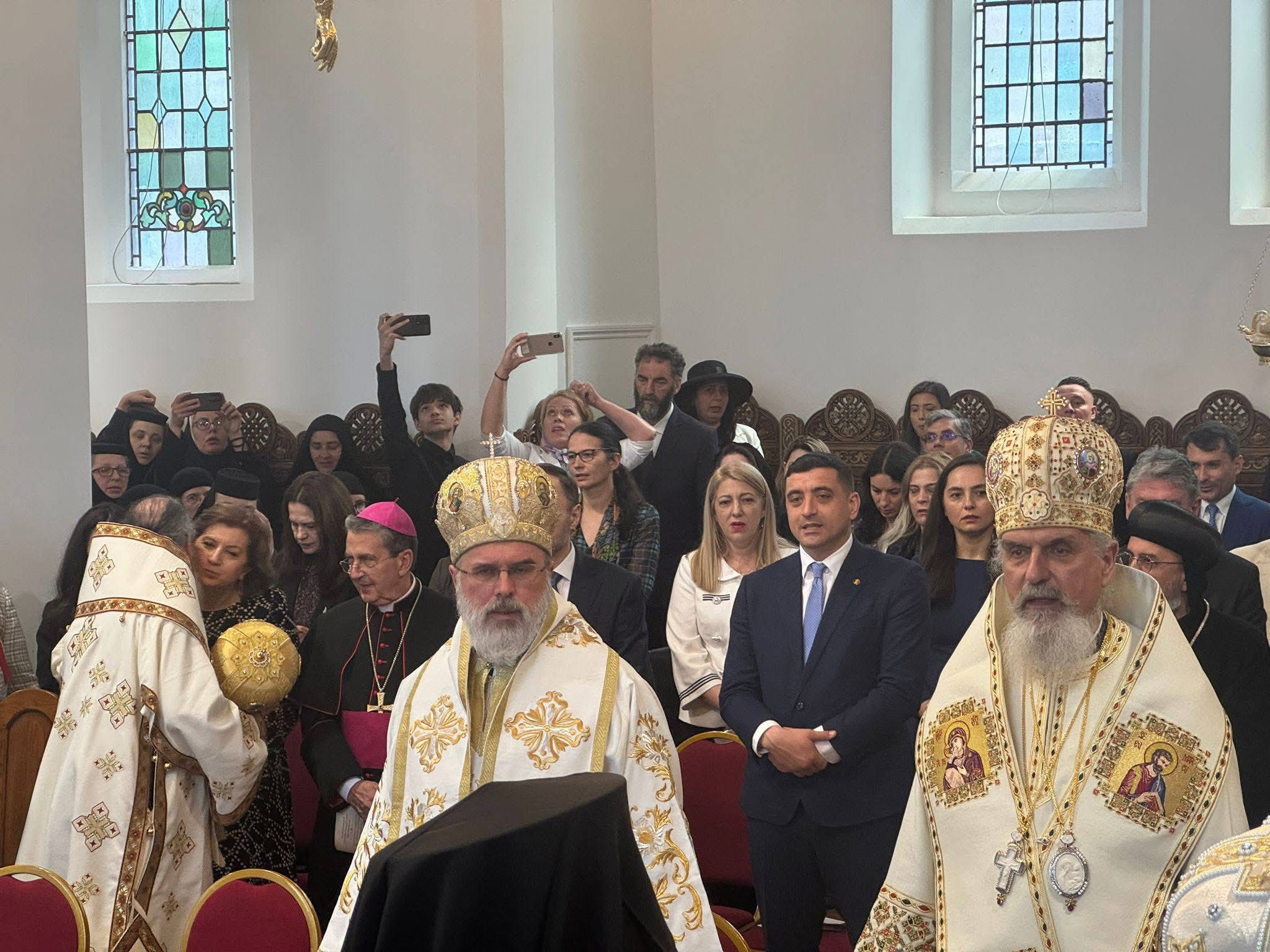
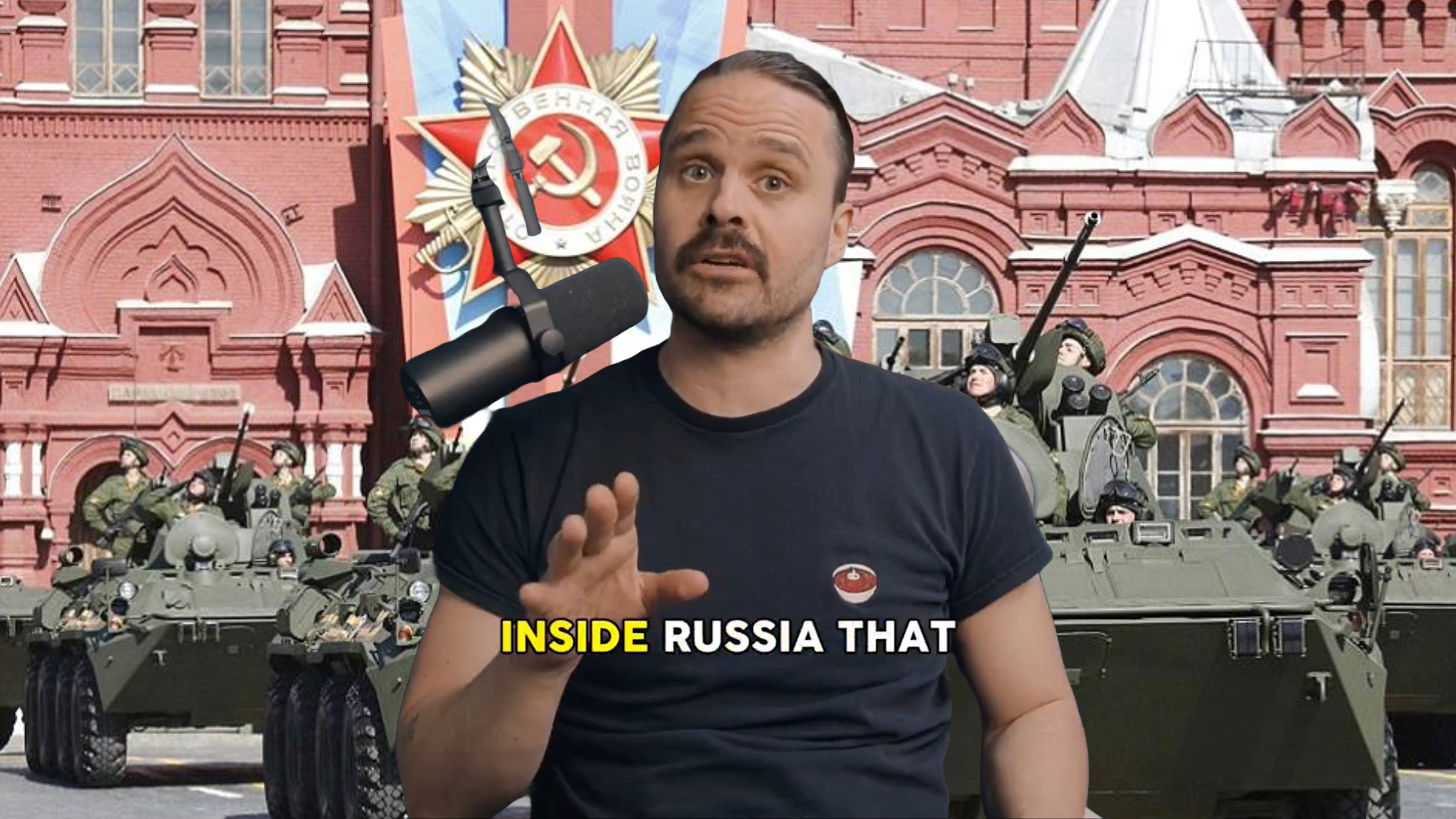

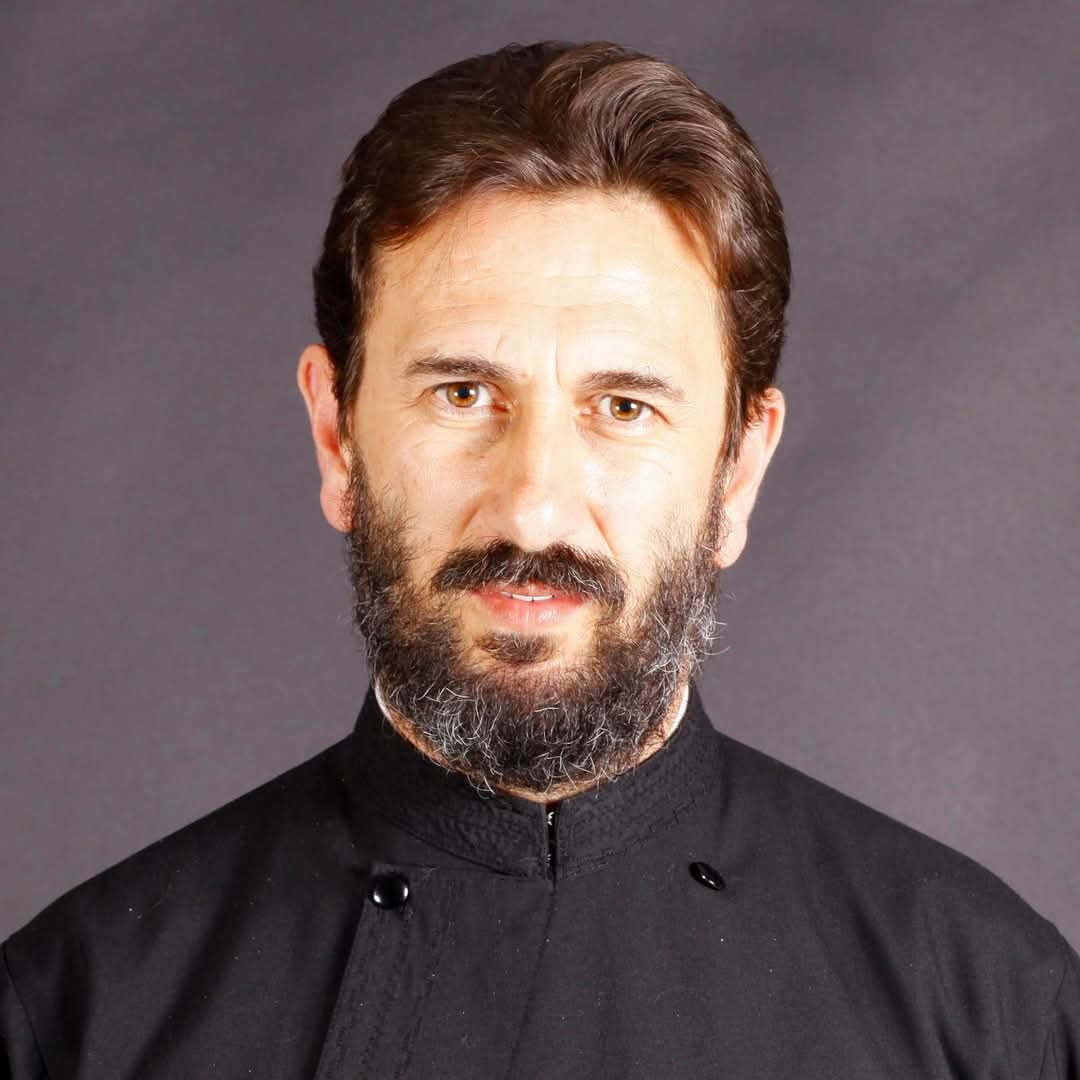
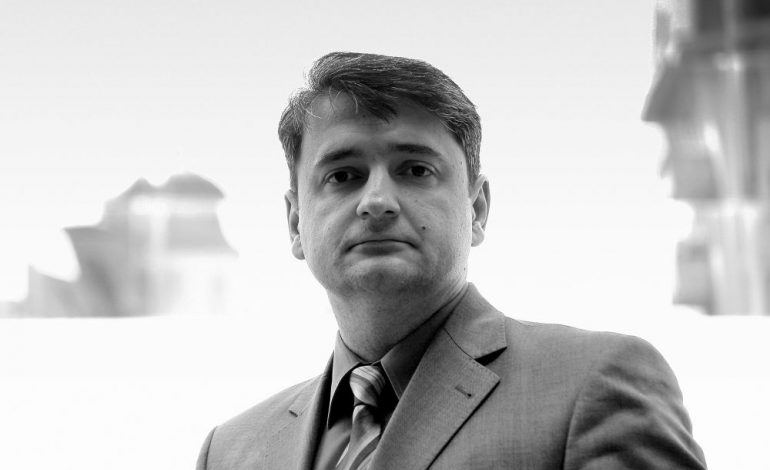

6 Comments
Daniel Francesco
14 March 2014Ucraina detine al treilea zacamant european de gaz de sist estimat de Administratia americana a Informatiilor din Energie la 1200 miliarde de metri cubi. Criza ucrainiana a aratat inca o data companiilor energofage ca trebuie sa gaseasca surse alternative pentru a putea face fata provocarii americane a industriei manufaturiere bazata pe energie ieftina.
Iata ce a declarat Gordon Moffat, directorul general al firmei Eurofer:
http://www.rigzone.com/news/oil_gas/a/132108/Ukraine_Crisis_Sharpens_Focus_on_European_Shale_Gas/?all=HG2#sthash.k5DEFcBg.dpuf
John Galt
14 March 2014http://dailycaller.com/2014/03/12/russias-new-ukraine-strategy-take-crimean-oil-and-gas-build-alternative-pipelines/
Putin 2010: Nabucco e periculos si inutil. https://inliniedreapta.net/nabucco-e-inutil-si-periculos-putin-dixit/
Martie 2011: Samanii si parapsihologii rusi anunta: Third World War to begin during Winter Games in 2014 (Pravda.ru – articolul exista si azi)
John Galt
14 March 2014Also: Gazprom Chairman Sold All His Shares Just Before Russia Invaded Crimea.
7 Februarie. Probabil la fel au facut si cu alte actiuni, respectiv pariuri pe rubla, adica unii au castigat masiv din aceasta operatiune. Insa in Rusia nu exista insider trading. Nimeni nu stie ce inseamna acest cuvant.
http://www.zerohedge.com/news/2014-03-14/gazprom-chairman-sold-all-his-shares-just-russia-invaded-crimea
Radu Oleniuc
14 March 2014Pentru ca tot cauta acum anumiti indivizi tot felul de informatii si nu stiu de unde sa ma ia, le atrag atentia ca poza pusa la inceputul articolului e de pe un site pe care rusii (cat si trepadusii lor din Romania) nici macar nu si-au imaginat ca poate fi vrodata spart, sau ca informatiile vor ajunge publice, in vazul oricui.
Nu de alta insa argumente de genul “insula nu are importanță socio-economică”, “resursele naturale nu sunt semnificative” (aha, cre’ca – numai in zacamantul de langa Insula Serpilor in stanga imaginii sunt vro 40-50 de miliarde de dolari), argumente folosite de Severin in discutia cu Buteiko, respectiv de avocatii Romaniei in procesul de la Haga, nu doar ca nu ar mai fi stat in picioare dar ar fi echivalat chiar cu ceea ce unii numesc “tradare de tara”. Pe langa atentat asupra sigurantei nationale, integritatii samd. Pentru ca ei stiau prea bine ca nu e asa. Se stia lucrul asta inca de prin anii 80.
Ori e prostie colosala (putin probabil), ori e ticalosie. Insa in fine, ar fi treaba parchetului sa faca lumina aici. Cel putin de partea ucraineana, de cand a fugit Yanukovici, sigur se poate afla destul.
Asa ca revenind la serverele rusesti, sper ca cei care cauta acum cu disperare tot felul de informatii, sa nu pice in capcana propriei lor cautari, ca sa zic asa, si sa se dea de gol. Pentru ca in general, atunci cand folosesc calculatoare, rusii intra pe un teritoriu complet necunoscut, aici fiind vorba de imperialisti americani. Asa ca mare atentie cu cautatul pe scari, baieti. Sa nu va treziti cu cine stie ce capcane ascunse dupa vrun IP.
Care este cantitatea de petrol și gaze de sub Marea Neagră? | România curată
14 March 2014[…] luptă! – nu își dă resursele atât de ieftin pe cât ne pregătim să o facem noi, care nu avem nevoie să luptăm ci doar să votăm. Maaare act de […]
CARE ESTE CANTITATEA DE PETROL SI GAZE DE SUB MAREA NEAGRA?! | Octavpelin's Weblog
14 March 2014[…] luptă! – nu își dă resursele atât de ieftin pe cât ne pregătim să o facem noi, care nu avem nevoie să luptăm ci doar să votăm. Maaare act de […]